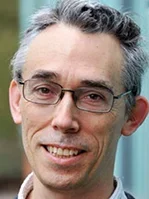Depression Grand Challenge
The Biological Basis Of Depression
Making Lives Better
Depression strikes one in four women and one in six men. Many people with the disorder are never treated. Among those who do receive treatment, 50 percent remain depressed. Depression is the largest contributor to the risk for suicide, and more than 40,000 Americans take their own lives each year. The malaise, foggy thinking, severe cognitive changes and relationship difficulties linked to the disease play out in the workplace. It is estimated that the illness costs the U.S. economy more than $200 billion annually in medical services and lost productivity.

In 2015, UCLA leaders decided to harness the talents of its neuroscience faculty and related health care professionals and confront those sobering statistics. The project will explore the biological basis of depression by launching a 100,000-person study to identify genes linked to depression—the largest-ever genetic study for a single disorder. The study will be led by Dr. Flint, who recently joined UCLA from Oxford University. Previously, Dr. Flint directed a large study in China that was the first to find a specific genetic link to depression. The UCLA genetics study will reflect the diversity of the California population and will include people with and without depression and some at risk for it. Project participants will undergo a complete DNA sequencing and be treated and monitored for 10 to 15 years in an effort to illuminate both the genetic and the environmental causes of depression.
“ ”
DNA Comes Before Everything Else
"DNA comes before everything else," Dr. Flint says. "It offers a first important foothold into the biology and causes of the disease. Eventually, we'll understand not just the biology but also the environmental causes."
By analyzing the DNA of a diverse group of people, scientists will likely identify hundreds of genes that play a role in the disorder. This information may lead to a biologically based diagnostic test for depression. Genetic clues will also help steer scientists to the specific neural circuits that play a role in the disease and may be targets for new treatments.
"To really make progress, we're going to need to understand what actually occurs in the brains of people to make them susceptible to depression or that make depression continue or that cause people to respond, or fail to respond, to treatment," Dr. Freimer, a leader in the Grand Challenge of Depression explains. "This is where we need to mobilize the whole neuroscience community."
Related Interest
How will Precision Health Research affect UCLA's efforts around the Depression Grand Challenge?
The Depression Grand Challenge will also focus on improving treatment for patients now. Dr. Michelle Craske, a professor of psychology, psychiatry and biobehavioral sciences, will lead an effort to compile evidence on current therapies for the many different types of depression.

The project will also involve research into digital technologies being developed by UCLA engineers for improved diagnosis and patient monitoring, technologies that can be used anywhere in the world. Depression is a disease that changes over time, with symptoms ebbing or flowing. User-friendly technologies, like smart phones or watches, can be employed to accurately gauge those fluctuations and allow doctors to respond faster. The Depression Grand Challenge reflects a spirit among the UCLA neuroscience community to dream big, Dr. Flint says.
"UCLA is the only university in the world that is drawing all its resources, campus-wide, around the disease," he says. "I think it's almost scandalous, especially given the severity and prevalence of depression, that every country in the world has something like a national cancer institute but no one has a depression institute. We need this sort of initiative. UCLA is hugely important in setting an example to the world."